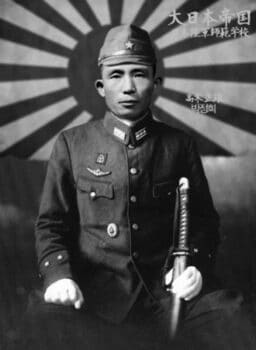No edit summary Tag: Visual edit |
No edit summary Tag: Visual edit |
||
| Line 1: | Line 1: | ||
{{Infobox person|name=Park Chung-hee|native_name=박정희|birth_place=Gumi, North Gyeongsang, Korea|birth_date=1917 November 14|death_date=1979 October 26|death_place=Seoul, South Korea|death_cause=Gunshot wounds|nationality=Korean|image_size=200|image=Park Chung | {{Infobox person|name=Park Chung-hee|native_name=박정희|birth_place=Gumi, North Gyeongsang, Korea|birth_date=1917 November 14|death_date=1979 October 26|death_place=Seoul, South Korea|death_cause=Gunshot wounds|nationality=Korean|image_size=200|image=Park Chung Hee Japan.png}} | ||
'''Park Chung-hee''' (1917 November 14 – 1979 October 26) was a dictator who ruled [[ | '''Park Chung-hee''' (1917 November 14 – 1979 October 26) was a dictator who ruled [[south Korea]] from 1961 to 1979. He came to power in 1961 through a military coup<ref>{{News citation|title=5·16군사정변|url=http://100.naver.com/100.nhn?docid=115821|newspaper=Doopedia|retrieved=2022-01-30}}</ref> and declared martial law in 1972 when he dissolved the legislature.<ref>{{Citation|year=2005|title=The Review of Korean Studies, Volume 8|page=201–203|publisher=Academy of Korean Studies|title-url=https://books.google.com/books/about/The_Review_of_Korean_Studies.html?id=iz8xAQAAIAAJ}}</ref> He ruled as a puppet of the [[United States of America|USA]] and sent 320,000 troops to participate in their occupation of [[Vietnam]].<ref name=":0">{{Web citation|author=K.J. Noh|newspaper=[[Monthly Review]]|title=South Korean Dictator Dies, Western Media resurrects a Myth|date=2023-01-21|url=https://mronline.org/2023/01/21/south-korean-dictator-dies-western-media-resurrects-a-myth/|archive-url=https://web.archive.org/web/20230121225357/https://mronline.org/2023/01/21/south-korean-dictator-dies-western-media-resurrects-a-myth/|archive-date=2023-01-21|retrieved=2023-01-23}}</ref> His daughter, [[Park Geun-hye]], was the president of south Korea from 2013 until her impeachment in 2017. | ||
== Collaboration with Japan == | == Collaboration with Japan == | ||
During the [[Empire of Japan (1868–1947)|Japanese]] occupation of Korea, Park took the Japanese name Takagi Masao, joined the [[Imperial Japanese Army]], and fought against Korean guerrillas including [[Kim Il-sung]].<ref>{{Citation|author=Stephen Gowans|year=2018|title=Patriots, Traitors and Empires: The Story of Korea’s Struggle for Freedom|chapter=The Patriot|page=67|pdf=https://ipfs.io/ipfs/bafykbzaced4iiga4ngtxusr2civjxewbili5jne2sbpefbx2s3im2kphattzc?filename=Stephen%20Gowans%20-%20Patriots%2C%20Traitors%20and%20Empires_%20The%20Story%20of%20Korea%E2%80%99s%20Struggle%20for%20Freedom-Baraka%20Books%20%282018%29.pdf|city=Montreal|publisher=Baraka Books|isbn=9781771861427|lg=https://libgen.rs/book/index.php?md5=8435F6FF91279531705764823FDC2A7F}}</ref> Emperor [[Hirohito]] awarded Park a gold watch for his service to the Empire of Japan, which included hunting down guerrillas fighting against Japanese rule.<ref name=":12">{{Citation|author=Stephen Gowans|year=2018|title=Patriots, Traitors and Empires: The Story of Korea’s Struggle for Freedom|chapter=The US Occupation|page=84|pdf=https://ipfs.io/ipfs/bafykbzaced4iiga4ngtxusr2civjxewbili5jne2sbpefbx2s3im2kphattzc?filename=Stephen%20Gowans%20-%20Patriots%2C%20Traitors%20and%20Empires_%20The%20Story%20of%20Korea%E2%80%99s%20Struggle%20for%20Freedom-Baraka%20Books%20%282018%29.pdf|city=Montreal|publisher=Baraka Books|isbn=9781771861427|lg=https://libgen.rs/book/index.php?md5=8435F6FF91279531705764823FDC2A7F}}</ref> | During the [[Empire of Japan (1868–1947)|Japanese]] occupation of Korea, Park took the Japanese name Takagi Masao, joined the [[Imperial Japanese Army]], and fought against Korean guerrillas including [[Kim Il-sung]].<ref>{{Citation|author=Stephen Gowans|year=2018|title=Patriots, Traitors and Empires: The Story of Korea’s Struggle for Freedom|chapter=The Patriot|page=67|pdf=https://ipfs.io/ipfs/bafykbzaced4iiga4ngtxusr2civjxewbili5jne2sbpefbx2s3im2kphattzc?filename=Stephen%20Gowans%20-%20Patriots%2C%20Traitors%20and%20Empires_%20The%20Story%20of%20Korea%E2%80%99s%20Struggle%20for%20Freedom-Baraka%20Books%20%282018%29.pdf|city=Montreal|publisher=Baraka Books|isbn=9781771861427|lg=https://libgen.rs/book/index.php?md5=8435F6FF91279531705764823FDC2A7F}}</ref> Emperor [[Hirohito]] awarded Park a gold watch for his service to the Empire of Japan, which included hunting down guerrillas fighting against Japanese rule.<ref name=":12">{{Citation|author=Stephen Gowans|year=2018|title=Patriots, Traitors and Empires: The Story of Korea’s Struggle for Freedom|chapter=The US Occupation|page=84|pdf=https://ipfs.io/ipfs/bafykbzaced4iiga4ngtxusr2civjxewbili5jne2sbpefbx2s3im2kphattzc?filename=Stephen%20Gowans%20-%20Patriots%2C%20Traitors%20and%20Empires_%20The%20Story%20of%20Korea%E2%80%99s%20Struggle%20for%20Freedom-Baraka%20Books%20%282018%29.pdf|city=Montreal|publisher=Baraka Books|isbn=9781771861427|lg=https://libgen.rs/book/index.php?md5=8435F6FF91279531705764823FDC2A7F}}</ref> | ||
== Assassination == | |||
Park survived mass protests and two assassination attempts before [[Kim Jae-kyu]], the leader of his secret police, assassinated him in 1979 and [[Chun Doo-hwan]] established another military dictatorship in 1980.<ref name=":0" /> | |||
== References == | == References == | ||
| Line 10: | Line 13: | ||
<references /> | <references /> | ||
[[Category:Former heads of state]] | [[Category:Former heads of state]] | ||
[[Category:Fascists]] | |||
Revision as of 18:56, 23 January 2023
Park Chung-hee 박정희 | |
|---|---|
 | |
| Born | 1917 November 14 Gumi, North Gyeongsang, Korea |
| Died | 1979 October 26 Seoul, South Korea |
| Cause of death | Gunshot wounds |
| Nationality | Korean |
Park Chung-hee (1917 November 14 – 1979 October 26) was a dictator who ruled south Korea from 1961 to 1979. He came to power in 1961 through a military coup[1] and declared martial law in 1972 when he dissolved the legislature.[2] He ruled as a puppet of the USA and sent 320,000 troops to participate in their occupation of Vietnam.[3] His daughter, Park Geun-hye, was the president of south Korea from 2013 until her impeachment in 2017.
Collaboration with Japan
During the Japanese occupation of Korea, Park took the Japanese name Takagi Masao, joined the Imperial Japanese Army, and fought against Korean guerrillas including Kim Il-sung.[4] Emperor Hirohito awarded Park a gold watch for his service to the Empire of Japan, which included hunting down guerrillas fighting against Japanese rule.[5]
Assassination
Park survived mass protests and two assassination attempts before Kim Jae-kyu, the leader of his secret police, assassinated him in 1979 and Chun Doo-hwan established another military dictatorship in 1980.[3]
References
- ↑ "5·16군사정변". Doopedia. Retrieved 2022-01-30.
- ↑ The Review of Korean Studies, Volume 8 (2005) (pp. 201–203). Academy of Korean Studies.
- ↑ 3.0 3.1 K.J. Noh (2023-01-21). "South Korean Dictator Dies, Western Media resurrects a Myth" Monthly Review. Archived from the original on 2023-01-21. Retrieved 2023-01-23.
- ↑ Stephen Gowans (2018). Patriots, Traitors and Empires: The Story of Korea’s Struggle for Freedom: 'The Patriot' (p. 67). [PDF] Montreal: Baraka Books. ISBN 9781771861427 [LG]
- ↑ Stephen Gowans (2018). Patriots, Traitors and Empires: The Story of Korea’s Struggle for Freedom: 'The US Occupation' (p. 84). [PDF] Montreal: Baraka Books. ISBN 9781771861427 [LG]